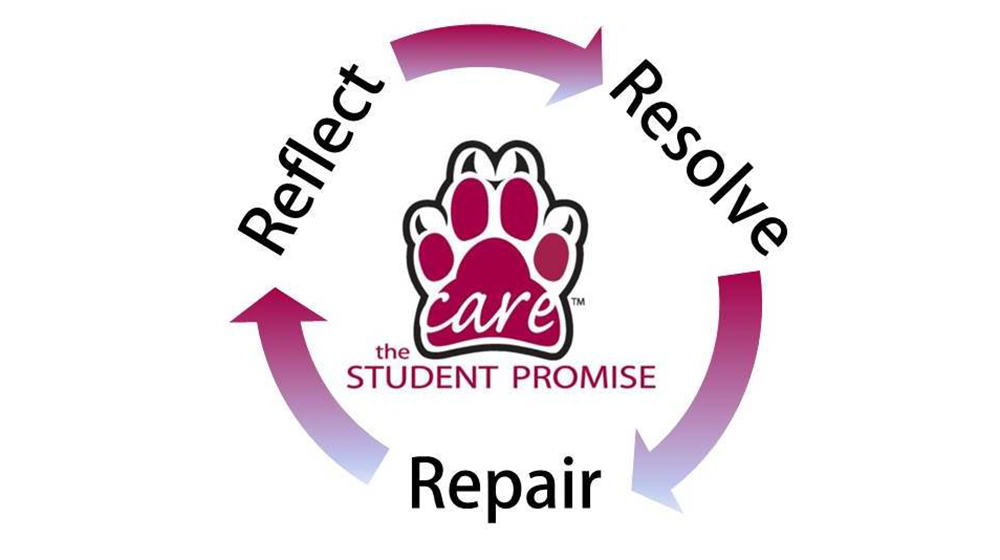Conflict Resolutions Liaisons
Conflict Resolution Liaisons

This group of undergraduate students helps the OSCCR with campus and student outreach. Through peer-to-peer engagement and education, Conflict Resolution Liaisons (CRLs) are the student voice for the OSCCR. Conflict Resolution Liaisons can help bridge the gap between real students and the conduct process at Loyola.
What do CRLs do?
Conflict Resolution Liaisons help other students throughout the conduct and conflict resolution process by:
- Explaining what to expect during disciplinary hearings and/or conflict resolution processes
- Serving as Advisors during disciplinary hearings
- Facilitating workshops and reflection sessions with other students
- Conducting targeted outreach to campus partners about conflict resolution services
Why should I be a CRL?
The Conflict Resolution Liaison program offers GREAT benefits to you, such as:
- Skill-based training on effective communication, facilitation, conflict management, and much more
- Establishing partnerships with on-campus groups and relationships, mentorships with University staff
- Resume building opportunities—program creation and implementation, program evaluation, etc.
Want more info? Check out this CRL Overview and contact Jenna Silver, Conflict Resolution Coordinator, at jsilver2@luc.edu
This group of undergraduate students helps the OSCCR with campus and student outreach. Through peer-to-peer engagement and education, Conflict Resolution Liaisons (CRLs) are the student voice for the OSCCR. Conflict Resolution Liaisons can help bridge the gap between real students and the conduct process at Loyola.
What do CRLs do?
Conflict Resolution Liaisons help other students throughout the conduct and conflict resolution process by:
- Explaining what to expect during disciplinary hearings and/or conflict resolution processes
- Serving as Advisors during disciplinary hearings
- Facilitating workshops and reflection sessions with other students
- Conducting targeted outreach to campus partners about conflict resolution services
Why should I be a CRL?
The Conflict Resolution Liaison program offers GREAT benefits to you, such as:
- Skill-based training on effective communication, facilitation, conflict management, and much more
- Establishing partnerships with on-campus groups and relationships, mentorships with University staff
- Resume building opportunities—program creation and implementation, program evaluation, etc.
Want more info? Check out this CRL Overview and contact Jenna Silver, Conflict Resolution Coordinator, at jsilver2@luc.edu
